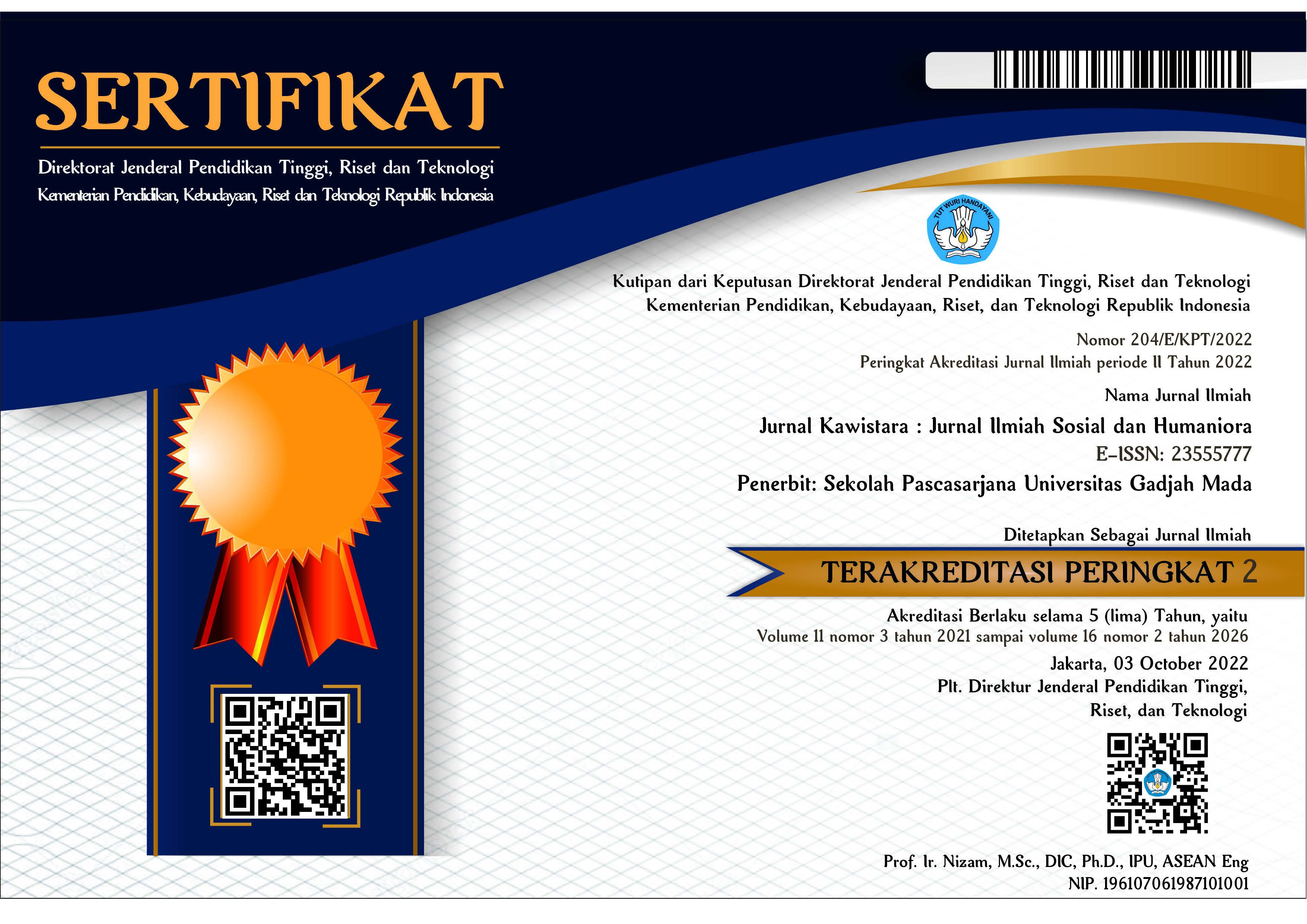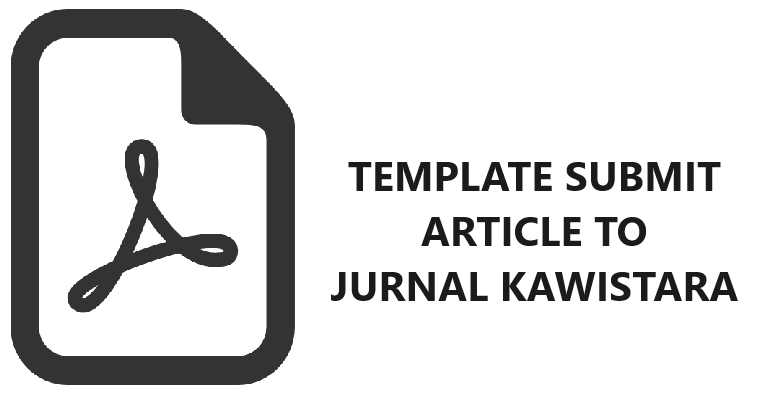THE PATHOLOGY OF TRIBAL NATIONALISM ACCORDING TO HANNAH ARENDT: UNCOVERING RELIGIOUS POPULISM MECHANISMS WHICH JEOPARDIZE CULTURAL DIVERSITY
Johannes Haryatmoko(1*)
(1) Universitas Sanata Dharma, Yogyakarta
(*) Corresponding Author
Abstract
Keywords
Full Text:
PDFReferences
Arendt, Hannah. 1972. Les Origines du totalitarisme: Le système totalitaire,
translated by Jean-Loup Bourget, R. Davreu and P. Lévy, Paris: Seuil.
_____________. 1995. Asal-usul Totalitarisme: Imperialisme, Vol. II, translated by
A. A. Nugroho and J.M. Subijanta, Jakarta: Yayasan Obor Indonesia.
_____________. Imperialism, Nationalism, Chauvinism. The Review of Politics,
1945. Cambridge University Press for University of
Notre Dame on behalf of Review of Politics, 7(4): 441-463.
_____________. Imperialist Character. The Review of Politics 1950. Cambridge University Press for University of Notre Dame on behalf of Review of Politics, 12(3): 303-320.
_____________. 1961. Condition de l’homme moderne, translated from English by
George Fradier, Paris: Calman Lévy.
_____________. 1972. Du mensonge à la violence (Crises of the Republic), translated
from English by Guy Durand, Paris: Calman Lévy.
Baudrillard, Jean, 1981. Simulacres et Simulation, Paris: Gallilée.
Beiner, Ronald. “Arendt and Nationalism”, in Dana Ricahrd Villa (ed.), Cambridge Companion to Hannah Arendt, Cambridge Massachusetts: Cambridge University Press, 2000, pp. 44-62.
Cocks, Joan. 1996. On Commonality, Nationalism, and Violence: Hannah Arendt, Rosa. Luxemburg and Frantz Fanon. In Women in German Yearbook, 12:39-51. (http://about.jstor.org/terms).
Fairclough, Norman. 2010. Critical Discourse Analysis. The Critical Study of Language, Edinburg: Longman.
Fuller, Steve,. 2018. Post-Truth: Knowledge as A Power Game, London: Anthem Press
Gellner, Ernest. 1983. Nation and Nationalism. Ithaca: Cornell University Press.
Girard, René, 1982. Le bouc émissaire, Paris: Grasset.
Haidt, Jonathan. 2012. The Righteous Mind: Why Good People are Divided by Politics and Religion, New York: Vintage Books.
Haryatmoko. 2010. Dominasi Penuh Muslihat: Akar Kekerasan dan Diskriminasi Jakarta: Gramedia Pustaka Utama.
Llorente, José Antonio. 2017. The Post-Truth Era: Reality vs. Perception. Uno Magazine. 27 March 2017, p. 9, www.Uno-Magazine.com.
Marzouki, Nadia (ed.) 2016, Saving the People: How Populist Hijack Religion, Oxford: Oxford University Press.
Midlarsky, Manus I. 2011. Origins of Political Extremism: Mass Violence in the Twentieth Century and Beyond. Cambridge: Cambridge University Press.
Article Metrics
Refbacks
- There are currently no refbacks.
Copyright (c) 2019 Johannes Haryatmoko

This work is licensed under a Creative Commons Attribution-ShareAlike 4.0 International License.
Jurnal Kawistara is published by the Graduate School, Universitas Gadjah Mada.











